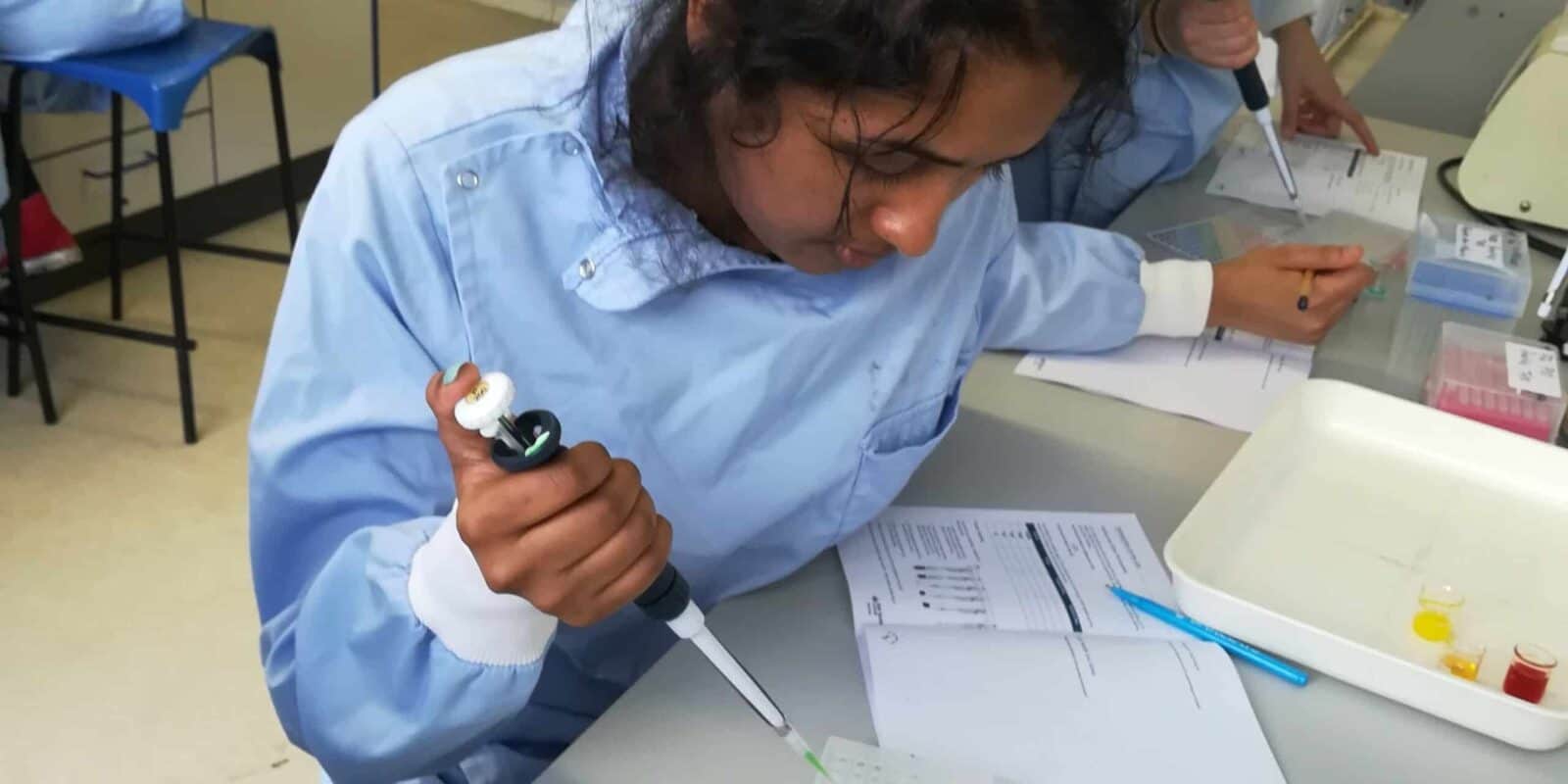Study in an industry-standard lab
The Life Science Centre at Castle Head in Cumbria is an industry-standard laboratory offering learners the opportunity to study biology in a professional and engaging setting. Our outstanding tutors will inspire your students with their passion for applied life sciences.
Our programmes are flexible, designed to offer anything from a single, stand-alone day in the lab, or a programme of several days giving students the opportunity to study key areas of their specification, complete core practical work and participate in activity sessions which develop self-confidence and team skills.
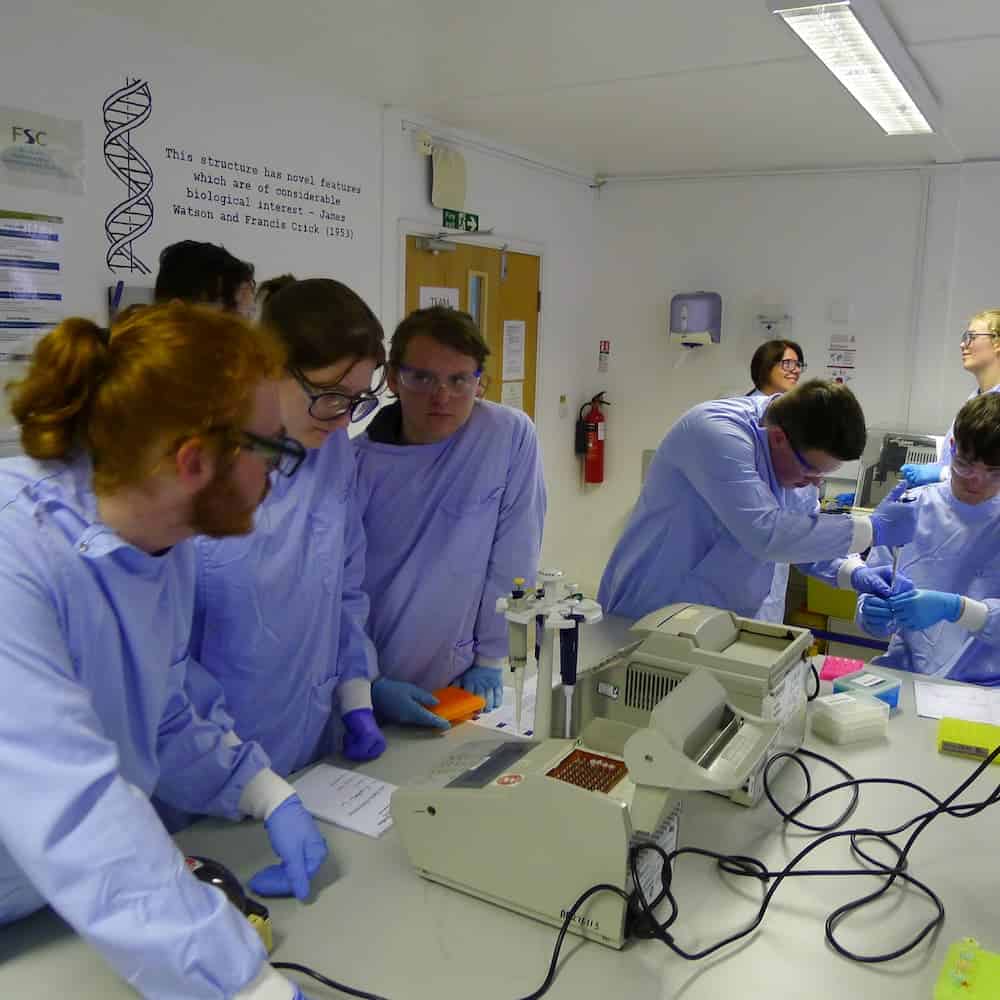
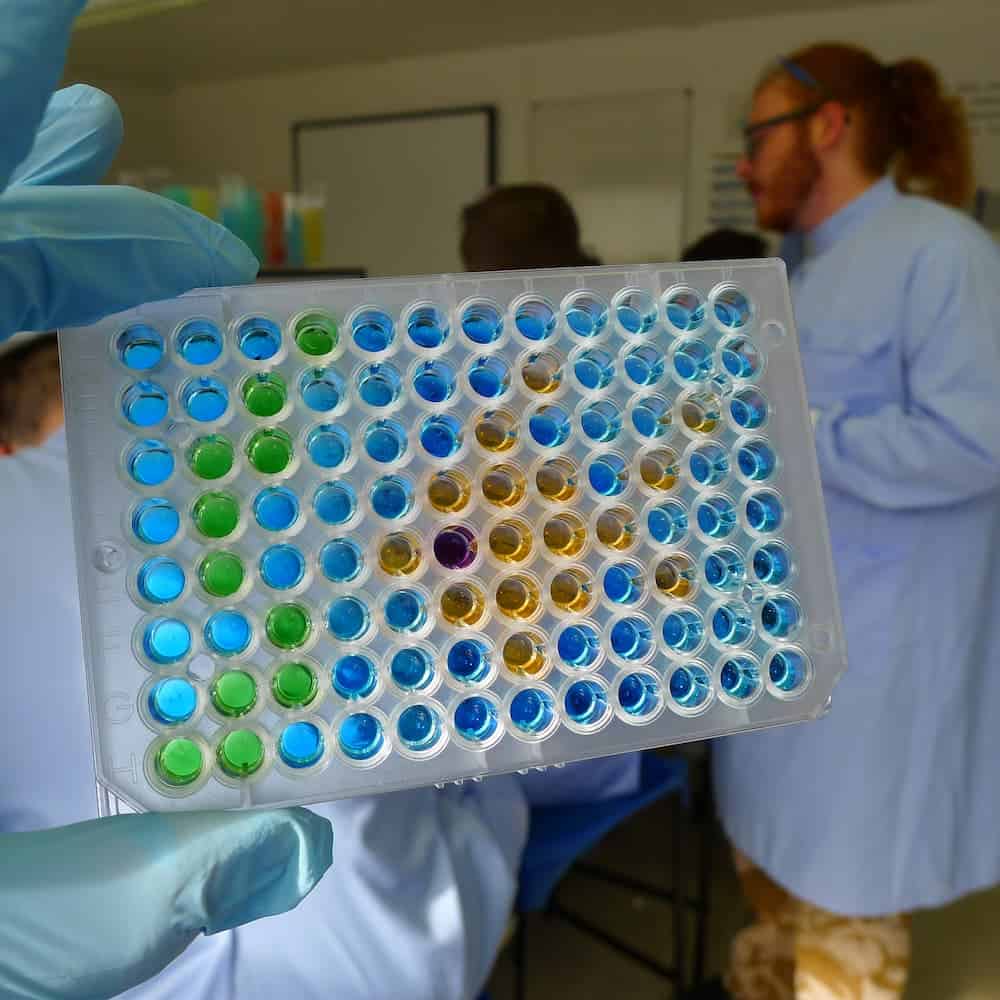
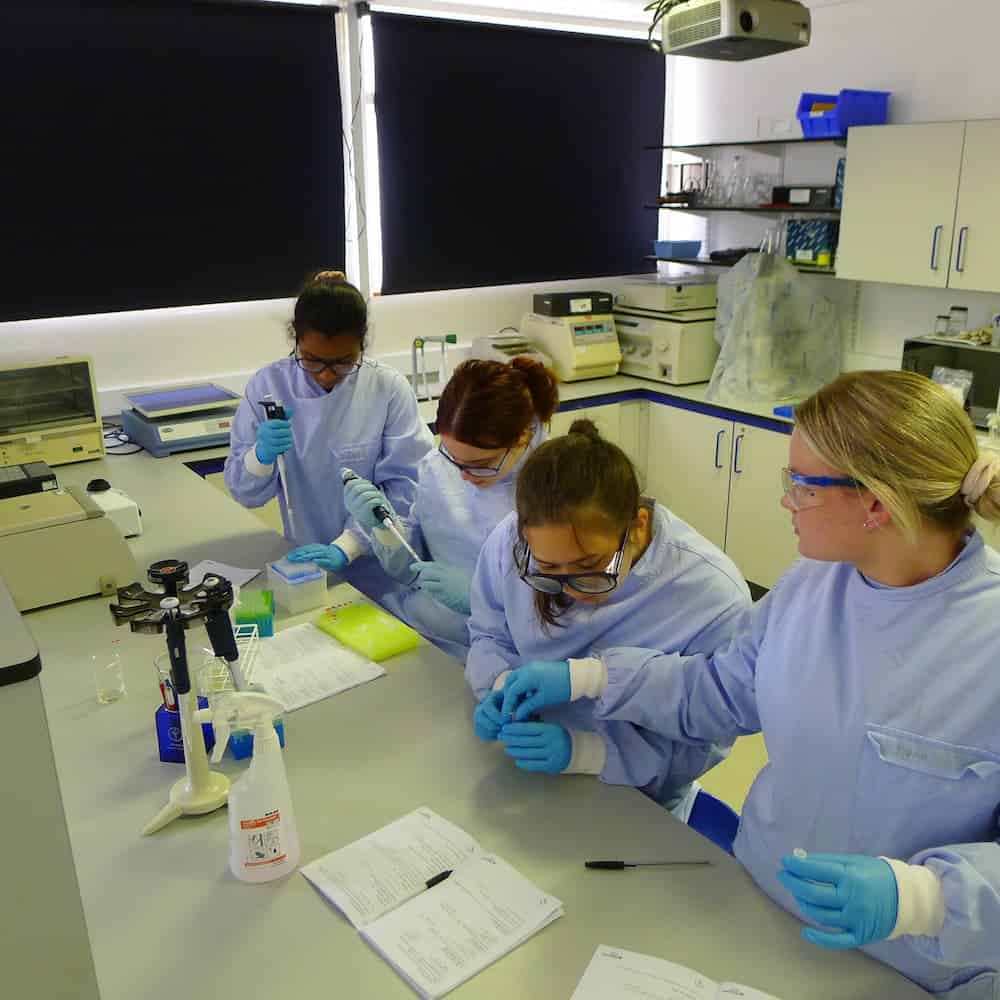
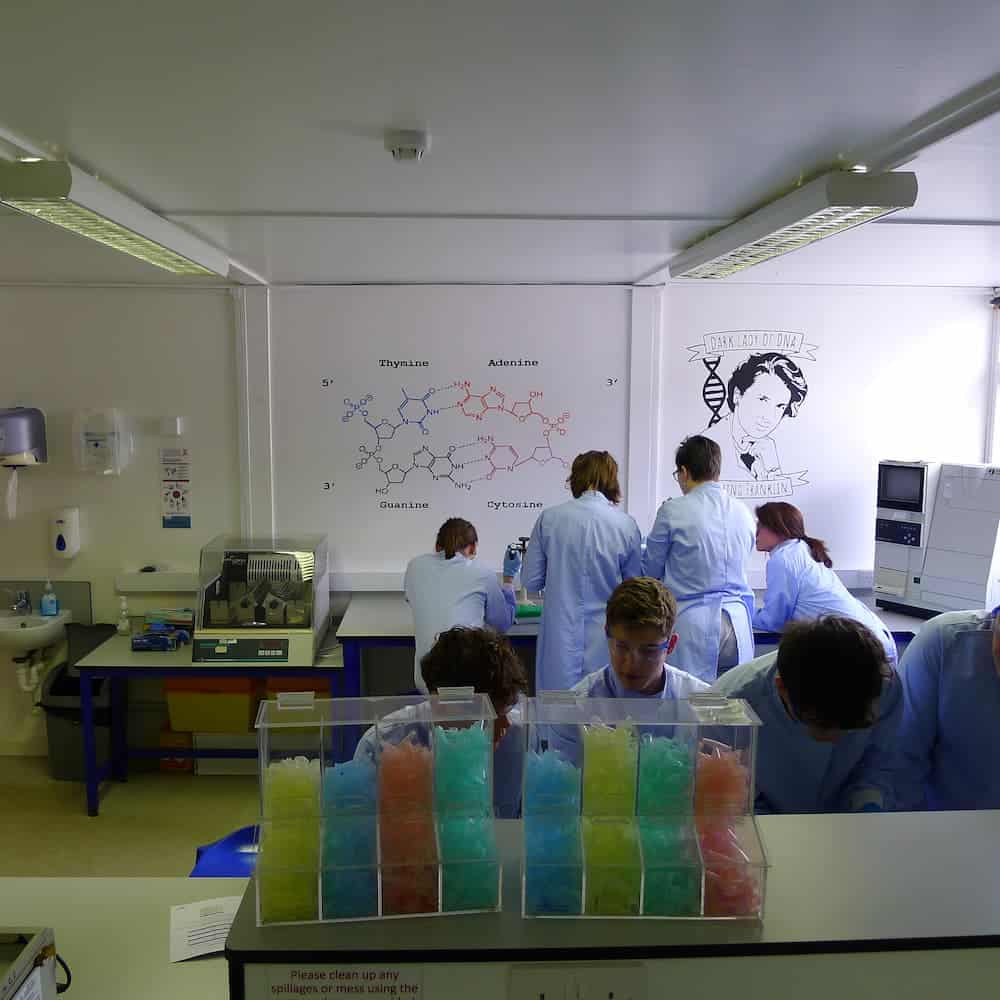
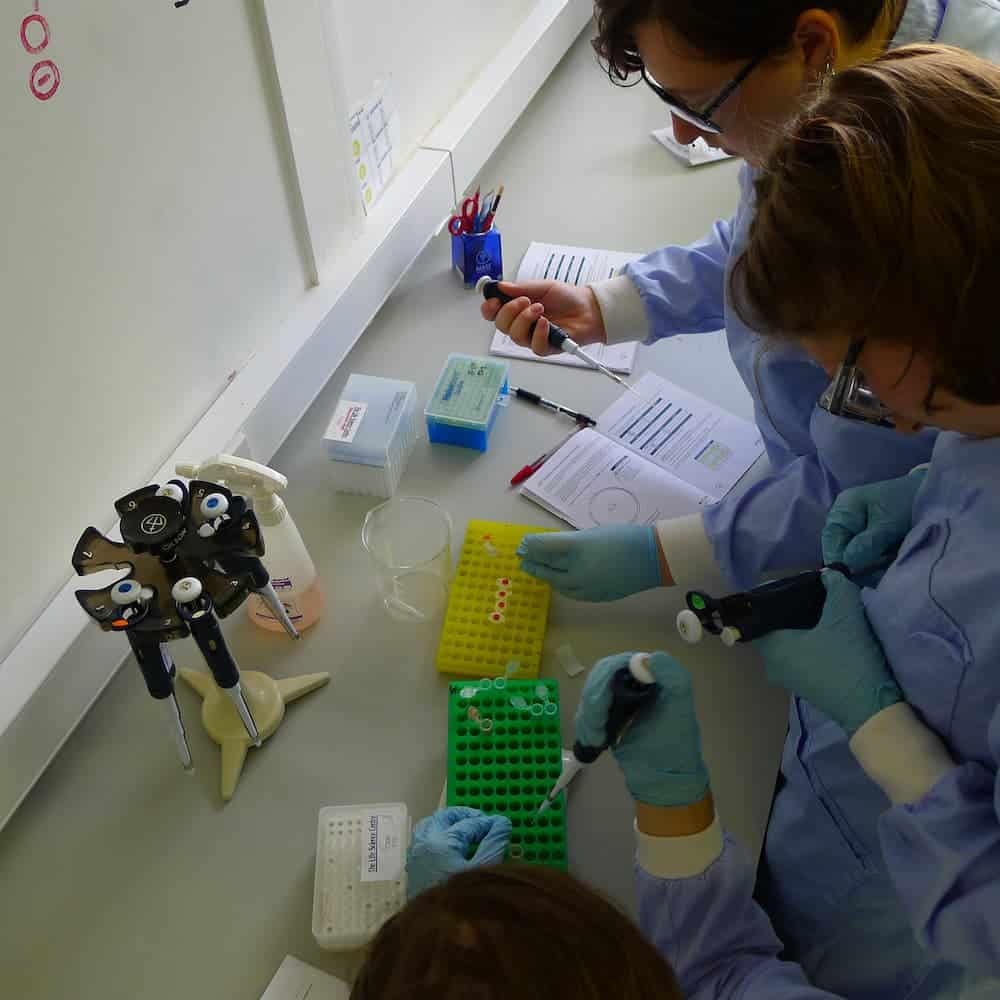
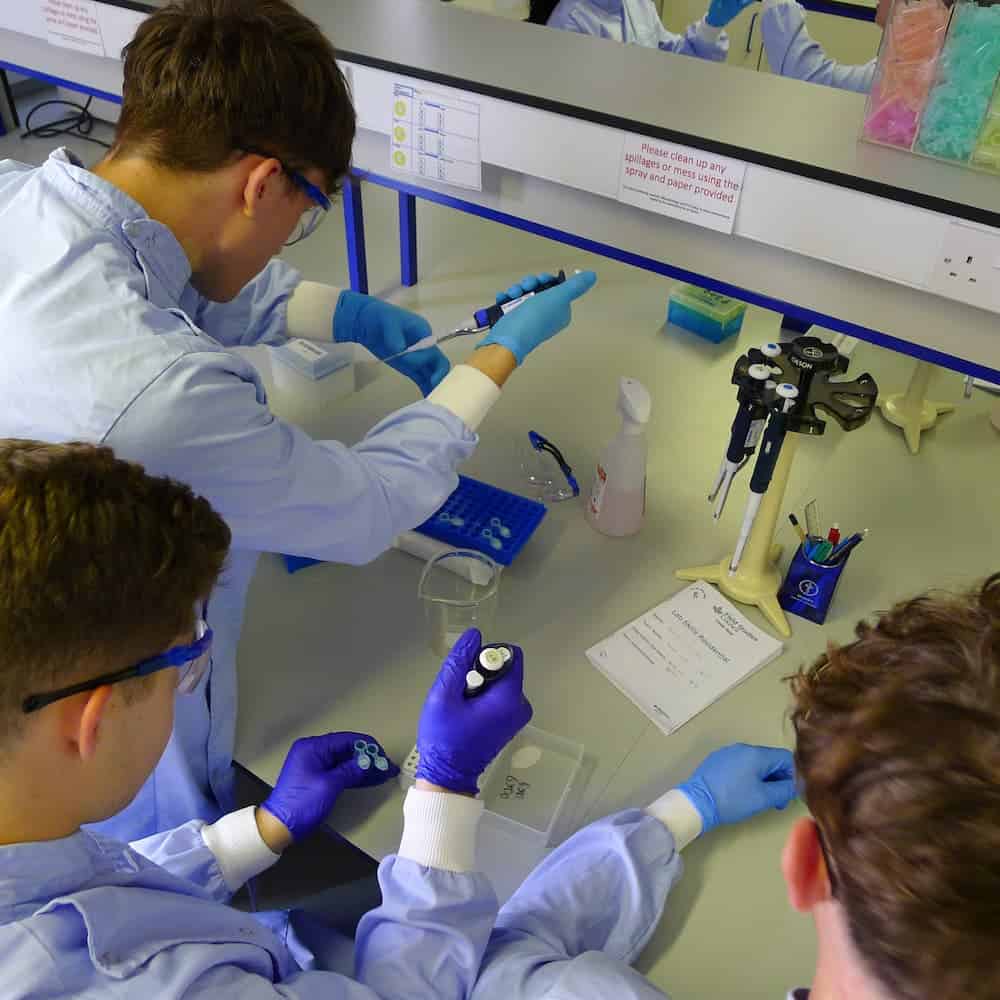
In addition to a fully-equipped life science lab, Castle Head Field Centre can offer activities within your programme from ghyll scrambling to canoeing, high ropes to hill walking. These can be combined with lab sessions to create a week to develop personal skills and confidence whilst creating opportunities to develop transferrable skills such as collaborative working.
Our courses have been offered as an extra-curricular enrichment programme to students with an interest in a career in biomedical/biochemical science.
Evening sessions will include an element of lab work (learning how to use Gilson pipettes, preparing bacteria plates and visualising DNA using gel electrophoresis) and opportunities can be created during the programme for a campfire and bushcraft.
Example Timetable
Our popular A Level options are outlined below; however we are very adaptable and can tailor a course to suit your needs. Additional fieldwork days are available including investigating succession and studying freshwater ecosystems. We can also deliver adventure activities, as well as team building and social activities including evening campfires.
Antibiotic resistance and Hospital Acquired Infection. Students explore the importance of aseptic technique when investigating the transmission of bacterial infection in hospital, developing an understanding of Hospital Acquired infection. Students have the opportunity to investigate bacterial growth and effectiveness of antibiotics and antiseptics and understand the codes of practice regarding hospital practice relating to infection prevention and control.
Applications of PCR in medicine. Students carry out genetic screening for BRCA 1 and BRCA2 – common genetic mutations which increase the likelihood of developing breast cancer. Students conduct a medical inquiry including Polymerase Chain Reaction (PCR) and Gel Electrophoresis including in-depth tutoring of each topic. Pupils will also carry out a debate on the ethical repercussions of genetic screening.
Microbial gene insertion to produce human insulin. Students investigate the production of human insulin and its applications. Students select and grow bacterial clones which contain insulin plasmid inserts. Students must carry out a restriction enzyme digest and gel electrophoresis to separate the plasmid into different lengths and visualise the segments to determine whether selected bacterial clones contains an insulin insert.
Forensics. Take part in a murder mystery! Students become detectives and attempt to identify a murder suspect using criminal forensic techniques including hair follicle analysis (PCR and gel electrophoresis), foot print casting, ink chromatography, fingerprinting and handwriting analysis
How this course fulfills the specification
Edexcel Biology A (Salters Nuffield) Core Practicals (CPAC):
14 Use gel electrophoresis to separate DNA fragments of different lengths
15 Investigate the effects of different antibiotics on bacteria
Edexcel Biology A (Salters Nuffield) Specification content:
Topic 2: Genes and health
Applications of PCR in medicine.
Topic 6: Immunity, infection and forensics
Microbial gene insertion to produce human insulin.
Forensics.
Antibiotic resistance and Hospital Acquired Infection..
Edexcel Biology B Core Practicals (CPAC):
11 Investigate the presence of different chloroplast pigments using chromatography
12 Investigate the rate of growth of bacteria in liquid culture
13 Isolate individual species from a mixed culture of bacteria using streak plating
Edexcel Biology B Specification content:
Topic 6. Microbiology and Pathogens
Antibiotic resistance and Hospital Acquired Infection.
Topic 7. Modern genetics
Applications of PCR in medicine.
Microbial gene insertion to produce human insulin.
OCR Practical Activity Groups (PAG):
PAG 6 Investigation using thin layer chromatography to separate photosynthetic pigments
PAG 7 The effect of antibiotics on bacterial growth
OCR Specification content:
4.1 Communicable diseases, disease prevention and the immune system
Antibiotic resistance and Hospital Acquired Infection.
6.1.3 Manipulating genomes
Applications of PCR in medicine.
Forensics.
6.2 Cloning and biotechnology
Microbial gene insertion to produce human insulin.
WJEC Practical technique requirements
7 Separate biological compounds using thin layer chromatography or (gel) electrophoresis
WJEC Specification content:
A2 Unit 4 Inheritance, variation. Option A Immunology and disease
Applications of PCR in medicine.
Microbial gene insertion to produce human insulin.
Antibiotic resistance and Hospital Acquired Infection.
Added value of this course
Develop skills
- Communication | Resilience | Independent thinking | Leadership
- Numeracy | Literacy | Investigative skills | Observation
Enhance Knowledge
- Ask questions.
- Apply knowledge in the real world and make links.
- Make sense of new places and understand our place and role within this.
Enjoy
- Have fun | Make friendships | Connect with nature

